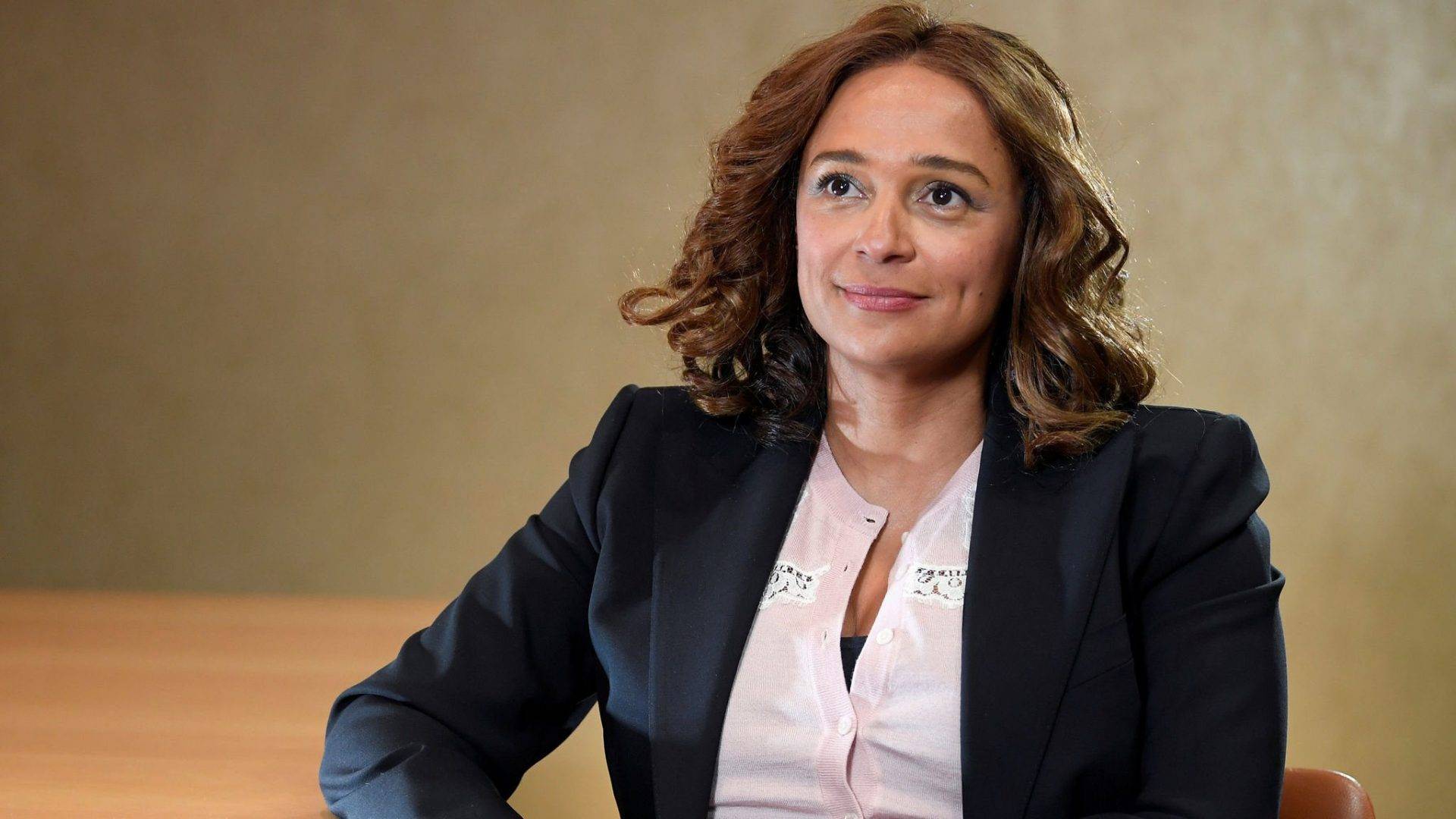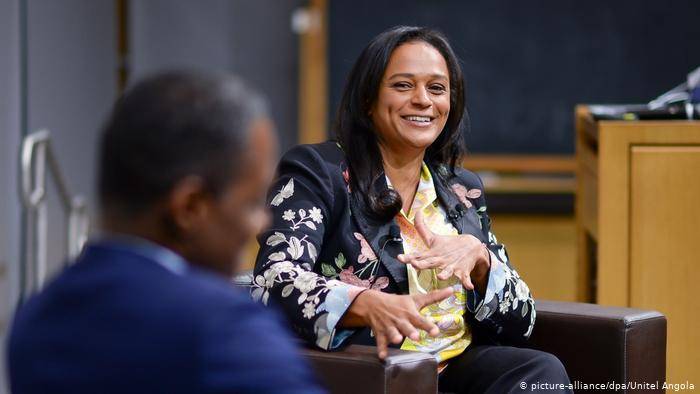Isabel dos Santos’ Multi Billion-Dollar Scandal Could Seriously Threaten Gender Equality In Angola

Africa’s richest woman and Angolan billionaire, Isabel dos Santos, is facing hard scrutiny over investigations which claims she amassed her fortune via dubious means.
The backlash from the results of Luanda Leaks inspection which spells fraud over the ex-president’s daughter’s USD 2 Bn fortune is attempting to scorch gender equality in Africa’s seventh largest country.
Early January, the Global Banking and Finance Review named Isabel dos Santos the best Angolan chairperson for 2019. Her company, Unitel, was also named the best telecommunications company in Angola for 2019. Dos Santos, who owns 25 percent of Unitel – Angola’s largest telco – is one of the company’s board members.
Women In Business
The investor’s company has pumped USD 2.2, Bn in fiber optic cables in the last two decades. The investment has resulted in 14,000 km of optical fiber, and now connects Angola with Brazil over a modern telecommunications network. The businesswoman founded Unitel during the dying days of the historic Angolan Civil War, when finding capital was much like a fairytale.
Isabel dos Santos – Africa’s first richest female – has proven herself to be a supporter of corporate responsibility at the company she runs and throughout her country.
Through her, six young Angolans were sent to pursue an agricultural degree at the Royal Agricultural University in Britain. In terms of workplace gender equality, Unitel has a voice louder than that of any other Angolan company.
To start, Angola is not one of the countries doing the most of gender equality in Africa. However, 37 percent of the telecommunications firm’s employees are women. At the least, her efforts count.
Also, 40 percent of the company’s management are female, while 20 percent of its technical staff are women. The equality numbers may not be as good as it is in Scandinavian countries like Sweden, but it does stand a strong case in the African context.
Presidency

It is not everyday that a woman with a controversial story decides to gun for presidency in a nation that’s never had a female leader. With the title of Africa’s richest woman – and being the daughter of the ex-president – Isabel made known her intentions to possibly contest in Angola’s 2022 elections.
Her father, José Eduardo dos Santos, ruled the country for 38 years – one of the longest regimes in Africa.
Most Angolans have unaired reservations regarding the fortune amassed by Isabel, believing that she must have reached the status via illegal means. At a time, prosecutors sought to recover USD 1 Bn Ms Dos Santos and her associates are alleged to owe the state.
The eye for the presidential seat marked a dramatic shift for a woman who consistently portrayed herself as an entrepreneur with no interest in politics.
But as we may have it, it is mostly praiseworthy for a woman to have such ambitions, irrespective of the situation. Even though her account were frozen as ordered by a court in Luanda, Isabel dos Santos wanted to leap in bounds, advertently sending women a message.
Possible Implications
Late December, Angolan authorities froze dos Santos’ assets after allegations by prosecutors said that she and her husband had embezzled over USD 1 Bn from state companies Sonangol and Sodiam. Isabel dos Santos was put in charge of Sonangol by her father in 2016. She was later fired from this position by her father’s successor, Joao Lourenco.
Now, if anything, Isabel – who studied electrical engineering at London’s prestigious King’s College and owns 42.5 percent of Portugal’s Eurobic bank – is one of the faces of female empowerment in Africa. Many want to be like her, but the recent string of corruption tied to her shiny heel threatens to bring gender equality in Angola to its knees.
Angola’s human inequality coefficient is equal to 32.3 percent. The country’s Human Development Index value for 2018 is 0.574— which puts the country in the medium human development category—positioning it at 149 out of 189 countries and territories.
The 2018 female HDI value for Angola is 0.546 in contrast with 0.605 for males, resulting in a GDI value of 0.902, placing it into Group 4. In comparison, GDI values for Senegal and Zambia are 0.873 and 0.949 respectively.
Women’s relative lack of political and economic leverage reduces their ability to demand accountability or to highlight their specific experiences and concerns about corruption. According to the United Nations Development Fund for Women, corruption disproportionately affects women and girls and impedes progress towards achieving the Millennium Development Goals.
The series of events is similar to that which transpired with the Malawian first lady last year. Gertrude Mutharika was accused of going on a personal trip with part of a USD 80 Mn state funds.
If ICIJ claims – and proves – that her USD 2 Bn fortune was realized through fraud, then there may not be so much of a ‘women empowerment story’ to tell.
Uneven?
It is Isabel dos Santos’ belief that some of the world’s most successful business persons have been African because of the continent’s entrepreneurial spirit. This spirit, nonetheless, has been weighed down by the stigmatization of women in the workplace, robbing the economy of valuable innovators and barring females from achieving their ambitions.
By ensuring that young women can access the same education, job opportunities, and potential for growth as men, dos Santos believes that she can change this attitude and instill a national confidence in women. But now, all that steam seems about to be watered down in lieu of the recent turn of events.
For young and budding businesswomen in various Africa, her success story has been a beacon of hope. But dos Santos has said many times that her rise to fame was marred by the sexism she had to endure in a male-dominated African business world.
There are numerous stories concerning prejudice and discrimination based on her gender. One of such is during business meetings where the people she’s negotiating with would look to her male assistant, advisor, or lawyer for validation though she already stated her offer.
Will gender equality in this African country remain the same after this scandal? Only time will tell, especially as Isabel has denied everything.
Featured Image: Financial Times